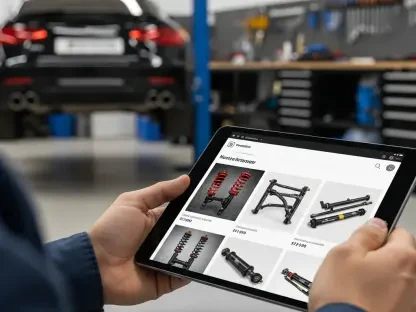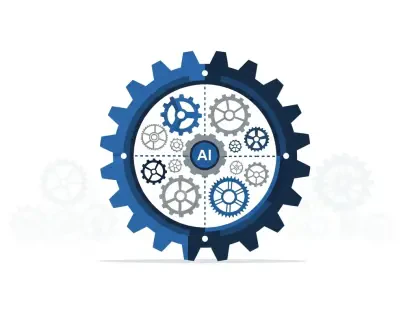Small and medium-sized enterprises (SMEs) frequently grapple with cash flow challenges, a concern echoed by most industry leaders worldwide. These issues have become obstacles for businesses, especially those with substantial turnovers, and are compounded by the persistent problem of payment reconciliation. These operational hurdles drain valuable resources, diverting essential time and energy away from potential growth opportunities. With data showing a significant rise in invoice payment defaults and closures in certain sectors, notably hospitality, the urgency to address these strains is palpable. Solutions that streamline these financial processes are not just beneficial but essential, and SaaS platforms seem to be offering a lifeline to these enterprises by bridging the gap.
Understanding the SME Cash Flow Conundrum
Payment Default Trends and Sectoral Challenges
Researchers supported by the SME Platform Payments Survey have found alarming statistics: four in five decision-makers within SMEs impair their cash flow due to slow payment processes. For entities with annual turnovers exceeding $10 million, the repercussions are substantial. CreditorWatch reports that invoice payment defaults have seen an uptick of 47%, underscoring the stress exerted on these businesses. The hospitality sector illustrates this trend acutely, with record-high closure rates. Not only are the financial strain and instability evident, but these defaults signal deeper operational challenges impacting long-term viability. As businesses face financial pressures, the efficiency of payment processing and reconciliation becomes even more critical.
Reconciliation Burdens and Operational Inefficiencies
One critical issue that SMEs persistently battle is the cumbersome task of payment reconciliation, which considerably detracts from their core business operations. With 73% of SME leaders identifying this process as frustrating, the average administration loses up to six hours per week in reconciliation tasks. Manual reconciliation procedures hinder efficient customer experiences in sectors like hospitality, impacting operational effectiveness profoundly. Coupled with a lack of system integration, it exacerbates financial bottlenecks in day-to-day functioning. The time lost is not merely time wasted but represents missed opportunities for business growth and innovation. This inefficiency underscores a pressing need for technological solutions that streamline reconciliation.
Leveraging SaaS Platforms for Financial Optimization
Integrated Solutions and System Efficiency
The evolution of SaaS technology provides a compelling solution to overcome these cash flow and payment reconciliation woes faced by SMEs. Certain platforms already offer consolidated reporting, yet an overwhelming 57% of SMEs still rely on disparate tools, thus increasing the complexity and friction in managing financial operations. SaaS providers have a unique opportunity to refine their offerings by integrating these solutions, reducing complexity, and fostering operational efficiency. Through advanced technology, SMEs can move towards a more seamless reconciliation process, ultimately contributing to a robust financial strategy. Integrated systems aim not only to ease logistic and operational burdens but also to enhance overall SME productivity.
Demonstrated Benefits and Partnership Opportunities
SaaS platforms, by embedding automated payment solutions, provide considerable relief to SMEs, reducing administrative hours and unresolved disputes significantly. For example, systems like RMS Pay show potential savings, reducing reconciliation efforts by a substantial weekly average of ten hours. Furthermore, RMS demonstrated a remarkable reduction in disputes by 93%, equating to substantial monetary benefits per property. Adyen’s Hayley Fisher advocates for SaaS providers to reach beyond rudimentary software offerings, suggesting a transition where embedded payment technologies can notably streamline the reconciliation process and spur cash flow improvements. By expanding into these areas, SaaS platforms can significantly augment their role as indispensable partners in SME growth.
Bridging the Gap Between SME Needs and Technological Solutions
Addressing Payment Reconciliation Challenges
SMEs today face a dual adversary—slow cash flow combined with intricate payment reconciliation processes. These inefficiencies represent barriers to business expansion and competitiveness, but they do not have to be insurmountable. Integrating automated, comprehensive payment solutions within a SaaS platform could revolutionize how SMEs handle reconciliation tasks. Innovations that integrate disparate systems into a coherent, unified solution alleviate the manual burden, freeing up resources and personnel to focus on strategic growth objectives. Simplifying this process represents not only significant cost and time savings but enables SMEs to operate more fluidly and effectively.
Advancing towards Sustainable Growth
Small and medium-sized enterprises (SMEs) often face significant challenges with cash flow that resonate across global industries. This ongoing issue is particularly troubling for businesses experiencing strong turnover figures, as payment reconciliation remains a persistent problem. Such operational difficulties can drain valuable resources, pulling away time and attention from potential avenues for growth. Data highlights a growing trend in invoice payment defaults and business closures, especially within sectors like hospitality, emphasizing the urgent need for effective interventions. The significance of finding solutions to these financial hurdles cannot be overlooked, with more streamlined processes proving not merely advantageous but vital. SaaS platforms are emerging as crucial tools, offering SMEs a much-needed lifeline by effectively bridging these gaps. They provide solutions that relieve financial strains, enabling these enterprises to refocus on growth, adaptability, and fostering long-term success in competitive markets.









